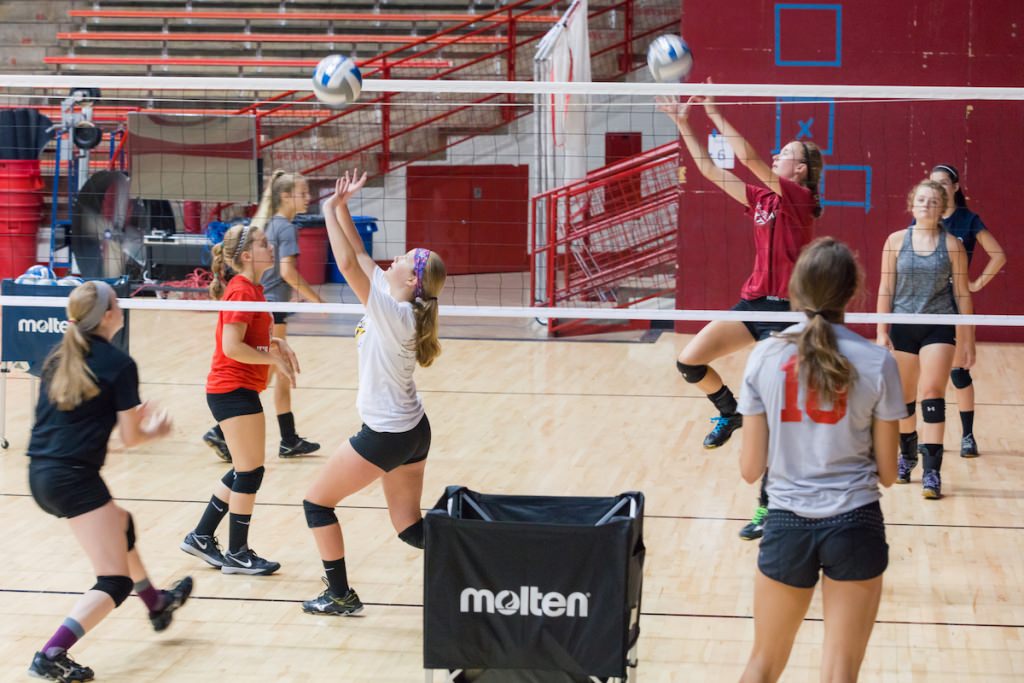Housing, Athletics team up for summer sports camps

About 5,300 young athletes participate in summer sports camps sponsored by the Division of Intercollegiate Athletics and served by University Housing. Photo: Joel Ninmann
Even during the summer months, the University of Wisconsin–Madison still buzzes with activity.
The Division of University Housing serves 17,000 guests each summer, and residential and commuter sports camps continue to grow. About 5,300 are young athletes participating in sports camps sponsored by the Division of Intercollegiate Athletics. By partnering in a year-round planning process, Badger Sports Camps and Housing fine-tune the logistics of organizing 36 youth camps.
For many youth campers, the visit is their first experience with the university, and connecting them to resources helps them feel like a part of the campus community.

For many youth campers, the visit is their first experience with the university. Photo: Joel Ninmann
“With all of our facilities being here on campus, it just makes sense for our campers to live in the residence halls,” says Tracy Chynoweth, director of camp administration. “Kids love to work out in the same facilities as student-athletes, eat in the dining markets, and feel like they are part of the Badger community.”
University Housing staff organize room assignments, check in campers, set up meeting spaces and provide three meals a day to the campers, through the Dining and Culinary Services team.
“Housing has the trained chefs and personnel to give campers and parents varied options when they’re at camp,” says Sharon Seagren, director of housing conference services. “There are always gluten-free, vegetarian and vegan options with lots of variety at every meal in the marketplaces.”
University Housing also employs a full-time registered dietitian who manages menu guidance for hundreds of guests with food sensitivities and allergies.
Housing partners with University Health Services to provide medical care for campers, whether it be distributing medications or addressing an injury or illness.
That peace of mind, Seagren explains, goes beyond that of the camper. Camp administrators benefit from arranging programs through a university partner.
“By providing a positive experience, we may be influencing their decision to come to UW–Madison one day.”
Tracy Chynoweth
“The risk management aspect alone, especially for minors, can seem overwhelming. Housing Conference Services staff understands what needs to be done when protecting our campers and influencing the entire camp experience so it goes smoothly, from both the staff and camper perspective.”
By employing uniform procedures and regular communication across the university, Conference Services is able to efficiently work with other campus entities. Collectively, they provide a solid network for all programs serving minors on campus.
“By providing a positive experience, we may be influencing their decision to come to UW–Madison one day,” Chynoweth says. “Working together, we get more people excited about coming to our university. And that’s a win for everybody.”
Tags: University Housing, UW Athletics
